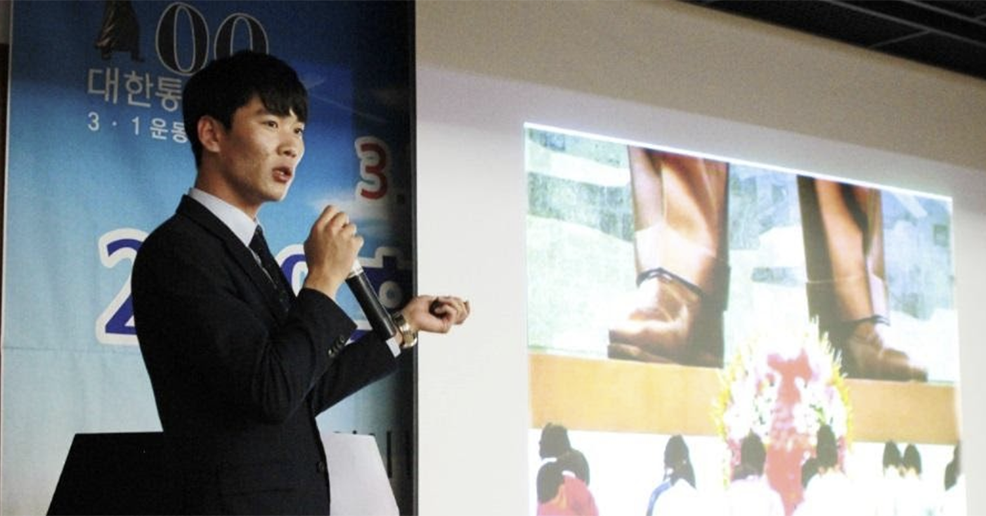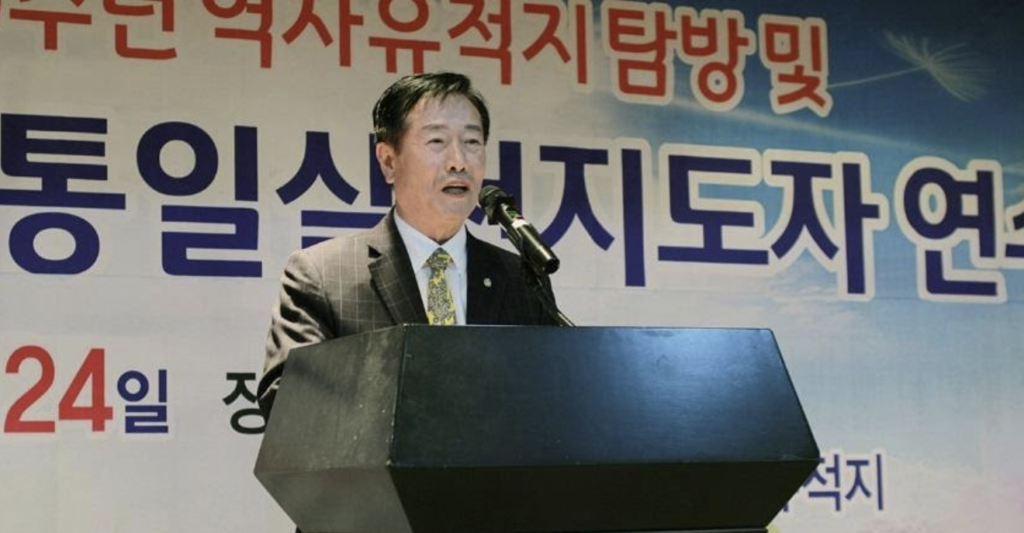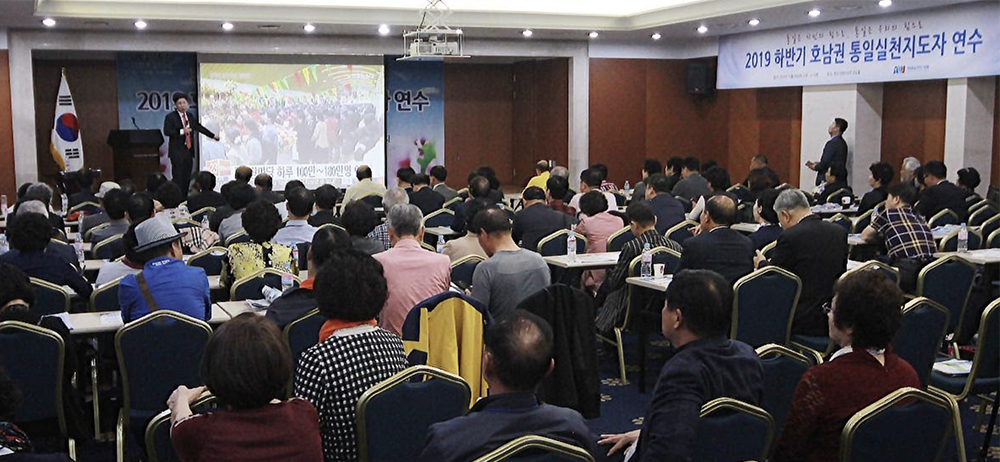Action for Korea United (AKU) is a coalition of thousands of Korean reunification activists, from both the North and South, who are drawing upon their shared identity as one people to build a movement for One Korea that is based on the ideals and aspirations of the Korean people and their thousands of years of shared history.
They regularly participate in AKU leadership training program to articulate the shared vision in practical ways to actively support the unification process before it is realized.
 Oh Cheong-sung, a North Korean defector, spoke at one of these programs in Busan in October 2019, describing the need for fundamental human rights and freedoms and the gradual economic changes occurring in North Korea. “Recently, North Korea has been developing a new market economy system centered on the Jangmadang (North Korean farmers’ markets, local markets, and black market) as the distribution system collapses. With the influx of Korean wave culture, such as South Korean dramas and movies, the motives for defection are changing from hunger to admiration for free democracy and capitalism.”
Oh Cheong-sung, a North Korean defector, spoke at one of these programs in Busan in October 2019, describing the need for fundamental human rights and freedoms and the gradual economic changes occurring in North Korea. “Recently, North Korea has been developing a new market economy system centered on the Jangmadang (North Korean farmers’ markets, local markets, and black market) as the distribution system collapses. With the influx of Korean wave culture, such as South Korean dramas and movies, the motives for defection are changing from hunger to admiration for free democracy and capitalism.”
In the 1990s, North Korea suffered a severe famine, but amidst much hardship and tragedy, North Korean citizens took matters into their own hands. Jangmadang, informal local markets, sprung up as North Koreans found resourceful and creative ways to support their families. According to Oh, North Koreans desire greater freedom and liberty and this manifests outwardly in their entrepreneurial endeavors.
Oh was a former North Korean soldier who escaped from North Korea in a rare dash across the Joint Security Area, also known as Panmunjom, in the demilitarized zone (DMZ) in 2017. Diplomatic meetings between heads of state occur here, and many tourists flock to the South Korean side of the DMZ to get a glimpse into the world’s most isolated country. Under close-range gunfire, Oh suffered five gunshot wounds before being rescued by South Korean soldiers and transported in a helicopter to a hospital.
Since his miraculous recovery, Oh has openly shared about the hunger, disease, and corruption that exists in the North. He has since joined the reunification movement and was one of the speakers at a leadership training program.
Inteck Seo, President of Global Peace Foundation Korea and Co-Chair of AKU, also spoke at several of the training programs, noting that Koreans are a historically peace-loving people and that “a vision beyond political conflicts” would determine what kind of country Korea would be after unification. The fate of the peninsula is in the hands of the Korean people according to Seo, who is dedicated to developing a people-centered movement for reunification, namely Action for Korea United.
 Kim Yong-in, Senior Vice-Chair of the Veterans Association of Korea and recently elected Co-chair of AKU, reminded AKU leaders of the historic moments in Korean history where citizens demonstrated an exemplary level of patriotism and civic responsibility. Koreans came together in solidarity in peaceful demonstrations against colonial rule during the March First Movement of 1919. In 1907, citizens donated funds to the government to protect their national sovereignty in the National Debt Redemption Movement which later inspired citizens to donate gold to the government to pay off national debts during the 1990’s Asian financial crisis.
Kim Yong-in, Senior Vice-Chair of the Veterans Association of Korea and recently elected Co-chair of AKU, reminded AKU leaders of the historic moments in Korean history where citizens demonstrated an exemplary level of patriotism and civic responsibility. Koreans came together in solidarity in peaceful demonstrations against colonial rule during the March First Movement of 1919. In 1907, citizens donated funds to the government to protect their national sovereignty in the National Debt Redemption Movement which later inspired citizens to donate gold to the government to pay off national debts during the 1990’s Asian financial crisis.
Kim pointed out that stabilization after reunification would be important. “If we show the strength of national unity in each crisis, such as in the March 1 Movement or the gold-gathering movement of the ’90s, the problems that will arise after reunification can be quickly resolved.” The Korean people were able to look outward, beyond their own difficulties and challenges, and think about the greater good during times of crises. This reflects their ancient ideal, Hongik Ingan, meaning to broadly benefit humanity.
The spirit of Korea’s March 1 Movement that occurred 100 years ago is reignited in civic-led unification movements like AKU that aims to realize a free, unified Korea that brings benefit to humanity.
Find out what you can do for reunification today.
The original post appears on Global Peace Foundation. Global Peace Foundation is an international non-sectarian, non-partisan, nonprofit organization, which promotes an innovative, values-based approach to peacebuilding, guided by the vision of One Family under God. GPF engages and organizes a global network of public and private-sector partners who develop community, national, and regional peace building models as the foundation for ethical and cohesive societies. Dr. Hyun Jin Preston Moon is founder and chairman of the Global Peace Foundation.

